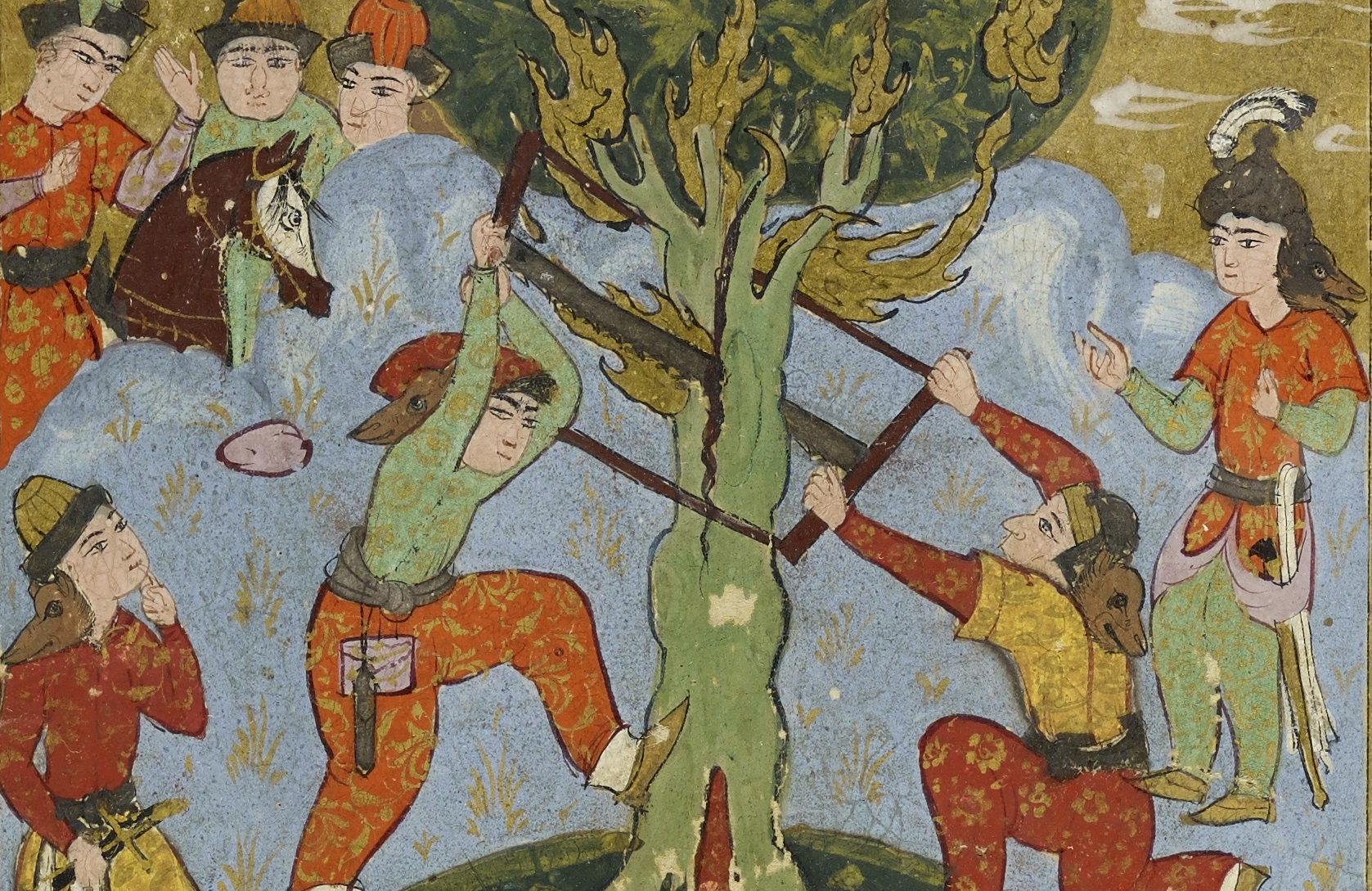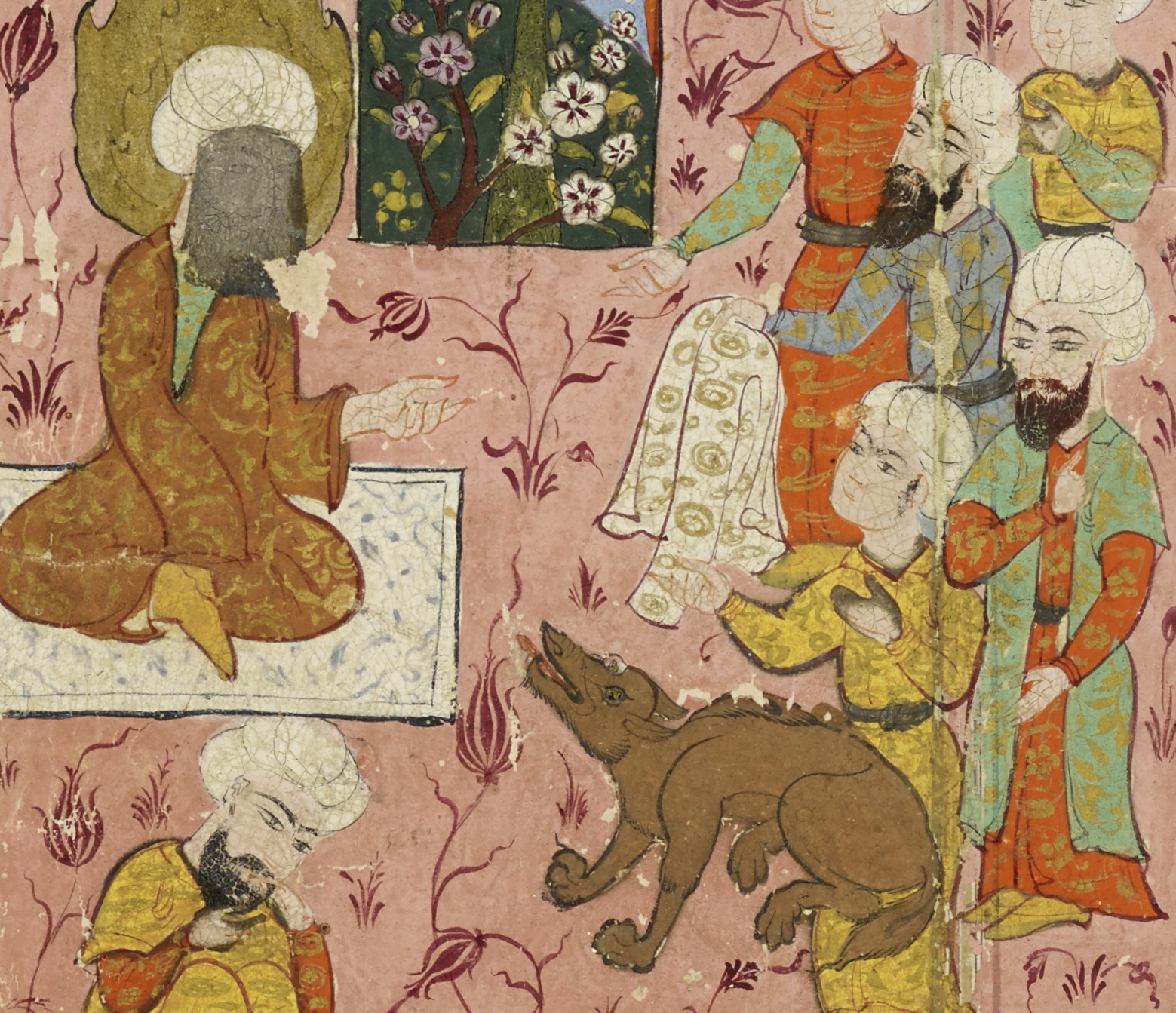Mizan Special Issue: “The Evolution and Uses of the Stories of the Prophets”
Michael Pregill
Institute for the Study of Muslim Societies and Civilizations
Boston University
The new issue of Mizan: Journal for the Study of Muslim Societies and Civilizations has just been published and is now online at http://www.mizanproject.org/journal/. The thematic issue, “The Evolution and Uses of the Stories of the Prophets,” coincides with the fiftieth anniversary of Tilman Nagel’s 1967 thesis “Die Qiṣaṣ al-anbiyāʾ: ein Beitrag zur arabischen Literaturgeschichte,” a groundbreaking contribution that has played a seminal role in the modern study of the subject. The papers we present here in the journal issue were originally delivered at a conference convened in Naples in fall 2015 by Marianna Klar, Roberto Tottoli, and myself in anticipation of this important occasion: “Islamic Stories of the Prophets: Semantics, Discourse, and Genre” (October 14–15, 2015).

The study of qiṣaṣ al-anbiyāʾ, the Islamic tales of the prophets, has a well-established pedigree in the Western academy. Nagel’s work in the 1960s provided a solid foundation for future research, but it is one that subsequent scholars have built upon somewhat irregularly, and much work remains to be done. Unfortunately, the study of qiṣaṣ al-anbiyāʾ per se has not flourished in the last couple of decades with quite the same vigor as the study of Qurʾān and tafsīr, though the study of qiṣaṣ has surely benefitted, at least indirectly, from the extremely energetic expansion of both of those fields in recent years.
Nagel’s thesis discusses the ancient roots of qiṣaṣ al-anbiyāʾ among early traditionists, as well as highlighting important literary works in which this early (or allegedly early) material is gathered. He goes on to delineate the literary genre of qiṣaṣ al-anbiyāʾ proper, discussing major works carrying this title or something similar such as mubtadaʾ, badʾ al-khalq, and so forth. Nagel’s thesis represents the first attempt to delineate the contours of qiṣaṣ al-anbiyāʾ both as a genre and a broader tradition in a serious and methodical way.

Pursuers sawing the tree in which Zechariah is hiding (detail) (p.75, Isl. Ms. 386, University of Michigan Library, Special Collections Library, Ann Arbor).
Perhaps the most obvious and explicit contribution Nagel’s work made was to draw greater attention to critical works of the qiṣaṣ genre such as those of al-Kisāʾī, al-Thaʿlabī, and Ibn Muṭarrif al-Ṭarafī (d. 454/1062). It is important to note, however, that this focus on classic specimens of the genre was balanced by Nagel’s keen appreciation of the larger tradition that crystallized in the specific works that constituted that genre, evident in the significant amounts of qiṣaṣ material found in works of historiography, tafsīr, adab, and the like. Understandably given the prominence of qur’anic material in establishing views of prophetic figures among Muslims, tafsīr has held a certain pride of place in scholarly treatments of the Islamic versions of Adam, Abraham, Moses, Jesus, and so forth. Thus, one clear desideratum in the field of qiṣaṣ studies, (such as it is) would be the exploration of representations of prophetic figures in other genres, as well as careful study of the genre of qiṣaṣ al-anbiyāʾ itself as a whole and the major works that it comprises.
This journal issue aims to make a small contribution to advancing the field by showcasing new research in qiṣaṣ studies. The articles featured here demonstrate that current scholarship on qiṣaṣ al-anbiyāʾ adopts a variety of disciplinary perspectives, reflects diverse concerns, and approaches the broader qiṣaṣ tradition in all its breadth and nuance, particularly focusing on the overlooked aspects of that tradition. Many of these articles discuss material from the post-classical period, especially historically neglected material from Shi’i literature, popular epic, and modern literary settings.
The future growth of the field may lead to such a degree of diffusion of approach and subject matter as to challenge the whole presupposition that there even is or could be a field of qiṣaṣ studies, although it is clear what all the articles in this issue at least have in common. All prioritize the question of what is distinctively Islamic in various Muslim reinterpretations of qiṣaṣ narratives over that of sources or influences; in fact, most of the articles here do not address the question of origins or precursors at all, or at least downplay this question. Thus, our contributors collectively emphasize that qiṣaṣ al-anbiyāʾ is not really about ‘biblical prophets in Islam’ or even ‘biblical-qurʾānic prophets’ but rather simply Islamic prophets—with the meaning of “Islamic” varying enormously from author to author and context to context.

Joseph’s brothers and the wolf before Jacob (detail) (p.48, Isl. Ms. 386, University of Michigan Library, Special Collections Library, Ann Arbor).
This brings us back full circle to the work of Nagel we commemorate and celebrate here, in that his pioneering work on qiṣaṣ al-anbiyāʾ as a genre originally aimed at discerning what was or has been distinctively Islamic about the Islamic stories of the prophets. This journal issue hopefully makes clear that the question of how Muslims have articulated specifically Islamic expressions and forms of meaning through the stories of the prophets is of perennial relevance, from the Qurʾān down to the modern era, and that qiṣaṣ al-anbiyāʾ, as genre and discourse, is of significant value for examining conceptions of Islam itself in a range of Muslim communities and traditions.
Mizan is a peer-reviewed, open-access journal published under a Creative Commons license and supported by the generosity of ILEX Foundation. The journal features an integrated annotation functionality and we encourage readers to engage our authors through this medium (using this functionality requires a quick registration process in order to prevent spamming of the site and maintain a civil and professional environment).
We are currently accepting proposals for short features to be published on the Mizan Project and Mizan Pop sites, as well as proposals for future thematic issues of the journal. Interested parties are encouraged to contact me directly at mpregill@bu.edu.
© International Qur’anic Studies Association, 2017. All rights reserved.
